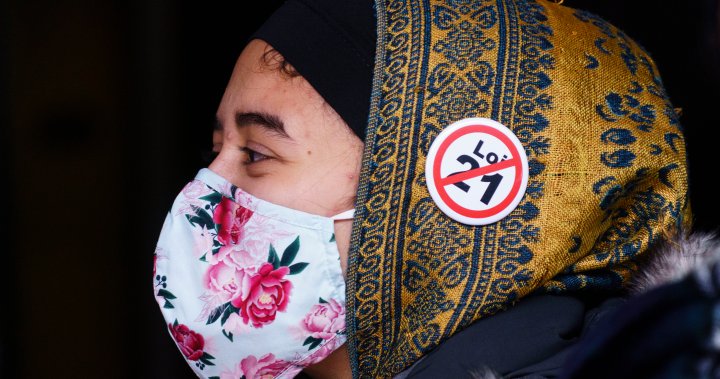The CEO of the National Council of Canadian Muslims, Stephen Brown, has spoken out against Quebec’s secularism law, Bill 21, calling it cruel and dehumanizing. Brown, a sixth-generation Afro-Canadian, draws parallels between the discrimination faced by some religious minorities due to this law and the historical exclusion of people who look like him from educational professions. He argues that the law has exacerbated social tensions in Quebec by causing individuals to lose their jobs in the public sector, such as teachers who are barred from wearing religious attire at work.
Brown’s group, along with the Canadian Civil Liberties Association (CCLA), is taking the case to Canada’s Supreme Court in an effort to challenge Bill 21. They are joined by the FAE teachers’ union and the English Montreal School Board in seeking judicial oversight on the law. Quebec’s Court of Appeal had previously upheld the law, prompting civil rights lawyer Julius Grey to voice concerns about issues such as language, gender equality, and the use of the notwithstanding clause in invoking the Canadian Charter to protect Bill 21.
Grey believes that there is a need to limit the government’s use of the notwithstanding clause and that the appeal to the Supreme Court is crucial in preventing a “charterless society.” Quebec’s French Language Minister, Jean-François Roberge, defends Bill 21 as a legitimate and moderate law that has garnered consensus within the province. However, critics argue that the law has discriminatory effects and violates fundamental rights and freedoms protected by the Charter of Rights and Freedoms.
The federal government has expressed its intention to intervene in the case at the Supreme Court to protect the interests of Canadians and uphold the Charter. Immigration Minister Marc Miller emphasizes the importance of defending Charter rights in the face of challenges like Bill 21. The groups involved in the appeal now await a decision from the Supreme Court on whether their arguments will be heard, indicating the significance of this case in determining the impact of Quebec’s secularism law on the rights and freedoms of individuals in the province.













